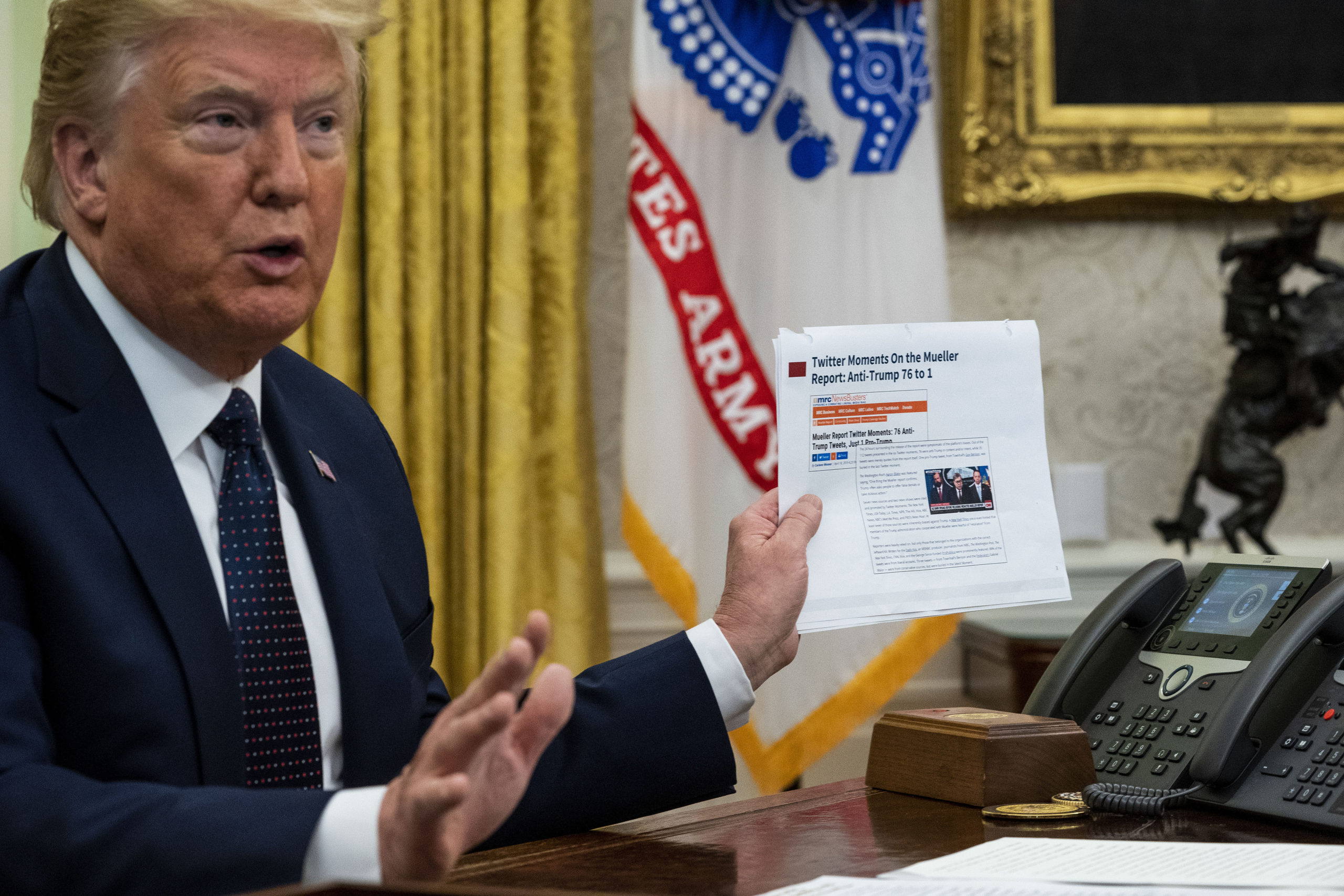Digital Politics is a column about the global intersection of technology and the world of politics.
Donald Trump picked a fight with social media giants. Its only the start of their problems.
On Friday, Twitter reignited its feud with the U.S. president, running a warning label on a tweet he wrote that the social company said was “glorifying violence.”
The move came a day after Trump issued an executive order targeted at social media companies (mostly Twitter, Facebook and Google) and how they police online speech. He warned them against editorializing, including fact-checking and posting warning labels on peoples online messages, or face legal challenges to how they operate.
Basically, Trump wants social media companies to be neutral players — allowing almost anyone to post what they like, when they like, how they like.
But this stance, one that will now be tested under U.S. law, runs directly opposite to what policymakers in Europe are now demanding from the same tech giants.
Brussels and European national capitals have responded to the barrage of hateful online messages, government-backed misinformation and extremist content with legislation that forces tech firms to make more, not fewer, editorial decisions about content posted on their global networks.
In this transatlantic standoff, social media companies are stuck between a rock and a hard place.
Either kowtow to Trumps demands (Twitter has doubled down on its approach, Facebook has called for calm) and anger the Europeans and others calling for greater content rules. Or placate Brussels and risk running afoul of the leader of the worlds last-standing superpower. In either case, they will be jeopardizing one of their largest commercial markets, one worth billions of dollars annually in online advertising.
This is not the first time that the U.S. and Europe have seen things differently on digital. From taxing the online world to policing antitrust complaints to deciding how privacy rules should work, Washington and Brussels are the odd couple of global politics: They share many of the same democratic beliefs, but when it comes to implementing them, they take very different paths.
This latest spat runs much deeper. It goes to basic principles of freedom of speech, the role of social media companies in democracies, and what limits these firms should place on public debate.
And in all three areas, the U.S. (under Trumps presidency) and Europe are more apart than ever.
That divide may fundamentally weaken the Wests ability to speak with one voice against authoritarian regimes like Russia and China. It may also lead to an increased splintering of the internet as people in the U.S. are served up a very different experiences to what their counterparts in Europe enjoy. At the very least, Facebook, Google and Twitter are left with the unenviable task of implementing vastly contradicting policies in their two largest markets.
For those on the right of U.S. politics, the battle comes down to freedom of speech and the perceived bias of how social media companies handle conservative-leaning posts (there is no scientific evidence for such a bias). For Trumps supporters — many of whom, ironically, have taken to social media to voice their complaints — these online platforms should steer clear of any form of content moderation in a (not legally accurate) belief that it infringes on their First Amendment rights.
That may change depending on who wins Novembers U.S. presidential election. But for now, Trump is pushing an aggressive line of no facRead More – Source
[contf] [contfnew] 
politico
[contfnewc] [contfnewc]























































